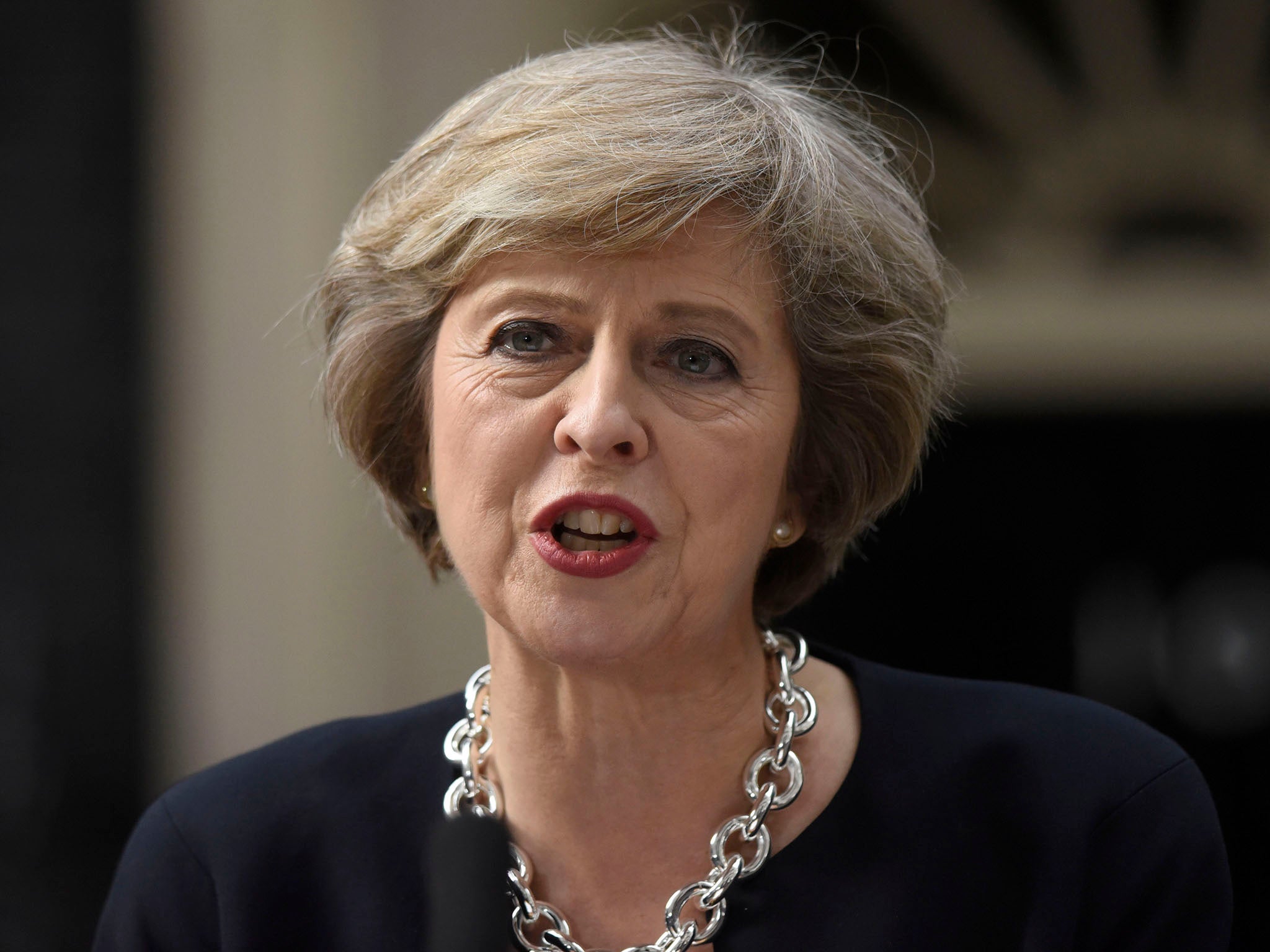Your support helps us to tell the story
From reproductive rights to climate change to Big Tech, The Independent is on the ground when the story is developing. Whether it's investigating the financials of Elon Musk's pro-Trump PAC or producing our latest documentary, 'The A Word', which shines a light on the American women fighting for reproductive rights, we know how important it is to parse out the facts from the messaging.
At such a critical moment in US history, we need reporters on the ground. Your donation allows us to keep sending journalists to speak to both sides of the story.
The Independent is trusted by Americans across the entire political spectrum. And unlike many other quality news outlets, we choose not to lock Americans out of our reporting and analysis with paywalls. We believe quality journalism should be available to everyone, paid for by those who can afford it.
Your support makes all the difference.Theresa May goes to her first major international summit today to reassure nervous world leaders that the UK is still “dependable” and willing to play a role on the world stage following Brexit.
Her trip to the G20 summit in China is a major personal test of the Prime Minister’s ability to convince allies, partners and rivals that Britain really is still “open for business”.
Mrs May will give a major speech to leaders, many of whom warned Brexit would be a disaster for the world economy, to insist the UK’s EU exit will be “smooth and orderly”.
But her overall success will hang on four potentially awkward face-to-face meetings with some of most powerful men in the world – Chinese President Xi Jinping, Barack Obama, Vladimir Putin and Indian Prime Minister Narendra Modi.
The meeting with Mr Xi could be particularly difficult as Mrs May’s government reviews whether to pull back from the £18 billion Hinkley nuclear project, embarrassing China which is heavily invested.
On Sunday, Mrs May has been given a key speaking slot in a session on the global economy in which she will insist the UK is still “consistent and dependable”.
Sources said she would try to use the talk to set out the UK’s view of the referendum decision, preparations for Brexit talks and underlining, once again, that Britain is “open for business and wanting a smooth and orderly departure”.
Key figures in the audience lined up just weeks ago behind David Cameron and George Osborne to convince British voters of the disastrous effects of leaving the EU.
But a UK official said: “Many of those that set out their views also respected the will of the democratic will of the British people.
“That decision has been taken. In that sense the Prime Minister will want to look at how we look to the future and now start planning for those relationships once the UK has left the European Union.”
Listening carefully to Mrs May’s promise on dependability will be Mr Xi, whose government’s money is propping up the ambitious plan to build two nuclear reactors at Hinkley Point.
His ambassador in the UK has warned relations between the two countries are at a "crucial historical juncture" and that "mutual trust" could be at risk if the deal falls.
But The Independent reported last week how Mrs May’s officials are said to be looking for the least damaging way out.
The Government has said it is considering “all the component parts” of the deal and will likely set out a decision this month.
The UK official insisted that the Chinese would not be expecting a decision “in the next few days” and went on to play down its importance, saying that it is not the case that Britain is “defined solely by one energy project.”
It will require a masterful balancing act to handle the issue, while also seeking the “golden era” in relations between the two countries that Mrs May’s officials claim she wants.
Her first bilateral will be with US President Mr Obama, who she will see soon after landing in Hangzhou. It comes not long after he warned that the UK would be at the “back of the queue” for trade talks if it quit Europe.
Officials said the face-to-face, their first since Mrs May moved into Downing Street, would take place before the summit had officially opened, allowing it more time, with likely talking points including Brexit, trade, Isis and Ukraine.
Three hours later Ukraine will come up in discussions again when for the first time she meets the Russian President, whose armed forces annexed the Crimea two years ago and are believed to have been engaged in surreptitious action in the country since.
Another difficult issue is Syria where the forces of Bashar Assad, which Mr Putin is supporting, were recently accused by the UN of using chemical weapons.
It is also unclear if she will directly raise the murder in London of Alexander Litvinenko, which an inquiry this year found was “probably” approved by Mr Putin.
The UK official said: “The Prime Minister’s view is that we should approach this in a hard-headed way, recognising that is in the interests of the UK to seek to work with Russia on issues around security that can affect people here at home, but recognising the many issues where we would disagree in the relationship.”
The following morning Mrs May then meets Mr Modi with talks likely to focus on economic co-operation and trade, but India has also recently raised concerns about British clampdowns on visas for students and workers.
Tension over the issue will have been heightened after Mrs May signalled earlier this week that curbs on migration would be a main goal of post-Brexit Britain.

Join our commenting forum
Join thought-provoking conversations, follow other Independent readers and see their replies
Comments